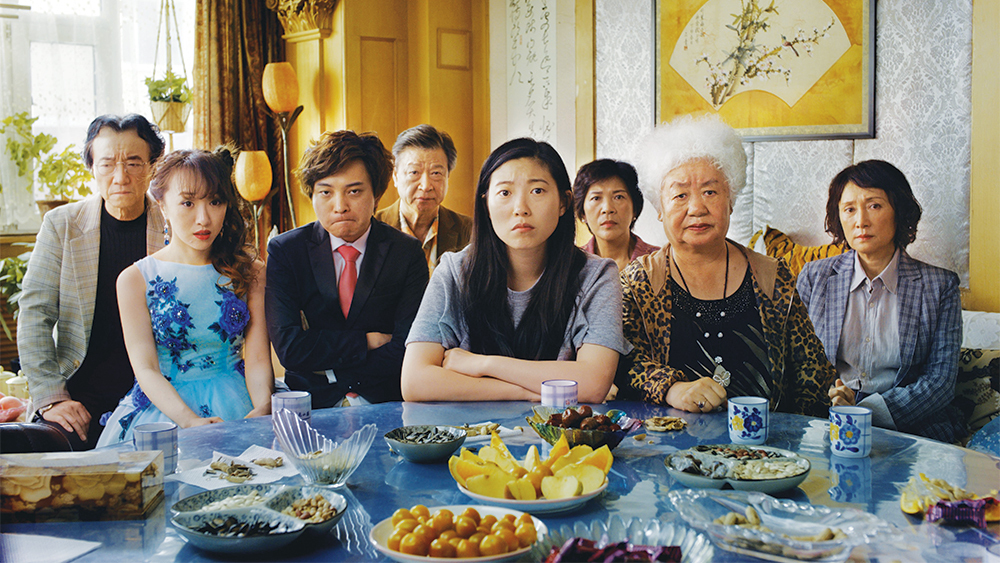In the movie, The Farewell, we’re introduced to Billi—a young Chinese-American woman who is conflicted when her family refuses to tell her terminally grandmother, Nai Nai, that she is dying of lung cancer. Wanting to honor her grandmother, Billi is inclined to reveal the truth to Nai Nai but is challenged by her family who says that within Eastern culture one’s life belongs to a whole; that it is the duty of the family to protect the ailing person even if it means withholding the truth. This fascinating movie enlightens viewers as it reminds us that how we deal, discuss and engage with death/dying is deeply influenced by our culture. We are called by this movie to consider how one’s culture greatly informs the way they approach issues of end-of-life care.
Below are stories from two of The Conversation Project’s team members. In their personal narratives, they share a few thoughts about how their ethnicity and culture has played a role in how they think of, engage with and discuss end-of-life.
Naomi’s Experience as a Haitian-American Woman
Mama Bo was ninety-six years old when she passed. Full of wit and cognition before she died, she told her daughters that she did not want any extensive measures taken if her health were to severely decline. When it did, her children honored her wishes by letting the rising and lowering of her chest slowly stop on its own.
My great-aunt’s death underscored a lot of things I already knew about my Haitian family: when it came to death, we did not really have a common agreement about how to grapple with it. There were members of our family who were irate that Mama Bo’s children didn’t do “everything they could” to extend her life (i.e. taking extra medical measures to elongate her days) and there were others who believed it was the right time to let go.
What I’ve repetitively seen in my family and within my community is overly aggressive treatment given to people who are clearly living on the brink of death. While my American purview is inclined to reprimand those who view this approach as reasonable, my Haitian roots humbly remind me of an island of people who do not have easy access to quality care or healthcare at all. So, those of us who are living in the States, when given the opportunity, tap into the what seems like an endless stream of healthcare interventions.
Similar to Billi in Farewell, I am sometimes conflicted by the way my community handles the issue of death. But I also recognize that my perspective is not to be exalted as it has been refined by my hyphened identity: Haitian-American (emphasize American). Beyond my personal experiences, there are that of other’s that greatly influence how they view death and dying.
Antonella’s Experience Within Her Filipino Community
When I think about Filipino culture, it is fundamentally about storytelling. Filipinos often live in a culture of shared experiences, which makes it easier to connect in community with fellow Filipinos around the world. I first learned to treasure storytelling from my parents, who often share stories about growing up in the Philippines. These stories were my connection with a place beyond what I knew and helped me understand what I valued in life.
My dad loves to tell stories in both Tagalog and English. The stories he tells me are rich in historical context and measured emotion that come from his unique experiences as a Filipino immigrant living in America. Although I can only understand his stories in English, I can tell how warm the Philippines has been in his heart and why it was important for me and my sister to grow up as culturally-aware Filipino-Americans.
So, when I wanted to talk to my dad about death and dying, I didn’t ask him directly about it because I know it wouldn’t be a simple answer. I know that many Filipinos traditionally believe in family harmony and a life as more than one’s own. In this case, I asked him what he thought of the movie The Farewell. My dad suggested that the central lie was a sensible choice: “They’re easing the burden for her. In the East, we value family harmony, and it’s assumed that the family should keep this in mind.”
He then tells me the story about his dad, my Lolo, who passed away when I was young. “I wasn’t able to physically be there for him,” he said. “But I could feel he was there when you woke up in the middle of the night and cried for a moment.” Filipinos are superstitious, and my dad believed that this moment was when my Lolo came to say goodbye.
This was the first of many conversations we had about something as complex as the end-of-life. I have come to understand the complexities of the Filipino experience as a result of diaspora, multigenerational differences, and multicultural influence. This makes considering what my family would want at the end-of-life seem complex, but it gives me a sense of how I have chosen to live: as a part of the Filipino community.
In my Filipino-American culture, the stories we share with each other help us understand the nuanced experiences among us. The impact of culture on one’s life looks different for everyone, but it is becoming more apparent that it is important for patients, providers, families, and communities to acknowledge the importance of cultural context.
We want to hear your story. Email us: how has your culture and/or ethnicity influence the way you approach the topic of death and dying? Send us your story and it will possibly be featured in our upcoming Culture Series.
Want to keep connected to The Conversation Project? Sign-up for our community engagement newsletter here or feel free to reach us at ConversationProject@ihi.org.



As Community Engagement Manager at Hospice of Santa Barbara, I am responsible for a monthly “Learn at Lunch” presentation. this year, I am have a series of 8 presentations on “Death and Dying from Different Religious perspectives.
this article today and the comments were very timely me and it has me thinking about presentations also based on cultural traditions – although religion and culture can be intermingled.
I have not seen the movie “Farewell” but it sounds as though I need to put this on my immediate “to do” list. Thank you for this newsletter and the monthly webinars! Jeanne
From a longer blog posting I wrote three months after my 92-year old father’s death:
https://ignatiusbau.com/2012/12/19/what-my-father-taught-me-about-health-and-health-care-about-life-and-death/
Death is difficult topic in many cultures. In our American culture, which values individual autonomy, agency, and “freedom”, we are only beginning to use documents such as durable powers of attorney for health care decisions, advance health care directives, and physician orders for life-sustaining treatment to discuss, and then document a patient’s wishes about his or her end-of-life care. In traditional Chinese and many other cultures, these decisions are not to be made just by the patient, but collectively as a family, often with the family elder (or the one with the earliest birth order, like the oldest son), being the final decision-maker. Without these discussions and this type of documentation, both health care providers and family members are left trying to second-guess the wishes of the patient, and when there are differences of opinion, trying to reconcile those differences when they literally have life and death consequences.
What my father taught me and my family in the last year of his life was that he knew exactly what he wanted and needed for his comfort – and for his eventual death. He was able to communicate to us both verbally (in remarkably direct ways, given how quiet and often not very communicative he had been all his life), and non-verbally, what he wished. He was surprising blunt about his advance directive and physician orders for life-sustaining treatments. He didn’t want his life to be artificially prolonged, he didn’t want to go to the emergency department or hospital, he wanted to die at home.
For many months, my father resisted the idea of us bringing a hospital bed into his bedroom because when we had brought one to the same bedroom for my mother 38 years ago, she died a few days later. My father was not ready to die, so he was not ready for the hospital bed. But exactly two weeks before he eventually did die, he agreed to have a hospital bed brought in. Having the hospital bed meant he was much more comfortable and made our caregiving much easier in those last weeks, but it also was his way of telling us that he was ready to die.
We decided to use the outpatient services of a hospice organization, which immediately sent a nurse and a social worker out to my father’s house once they were called. They prescribed and monitored anxiety and pain medication to make sure my father would be comfortable. They sent a home health aide to help change and bathe him. Perhaps most useful, they had a phone advice line available 24 hours/7 days a week to answer our questions about how best to care for my father in his last days.
In the last days of my father’s life, I would often spend long hours with him, sometimes staying awake through the night. I never have been a parent, but had a few nights of waking up every hour to check on a loved one. In those last days, our roles as parent and child were totally reversed as I fed my father, changed him, tried my best to comfort him. I am grateful that two days before he died, after a long bout of restlessness and discomfort, I was finally able to get him calmed down and tucked in. My father then said to me (in Chinese) “thank you, I am comfortable now.” Those were the last words my father said to me before he slipped into unconsciousness, and then passed away. I now appreciate that even those last words from my father was his last gift to me – of reassurance, of gratitude, of permission to let go…
I am half Native American, living in Michigan. As someone privileged to work for my tribe in the health care setting, I have seen many variations of end-of-life situations. Not all tribes are the same, but I think most of my people, especially the elders, face death and dying as something natural. After being the recipients of the federal government’s “care” for generations, there is a deep distrust of keeping secrets. I would not hesitate to introduce the discussion with any of them, being sensitive to whatever place the individual was in at that time.